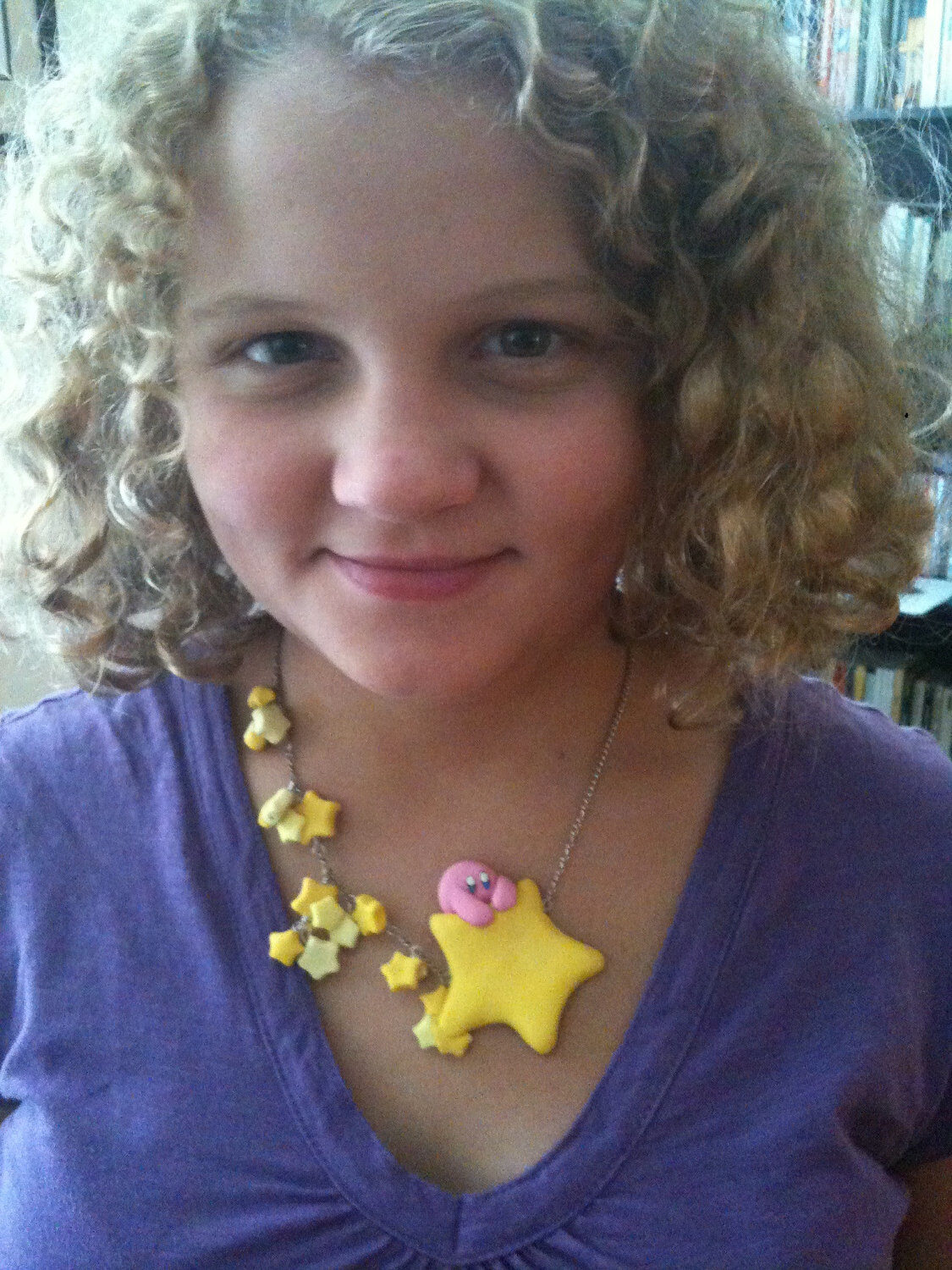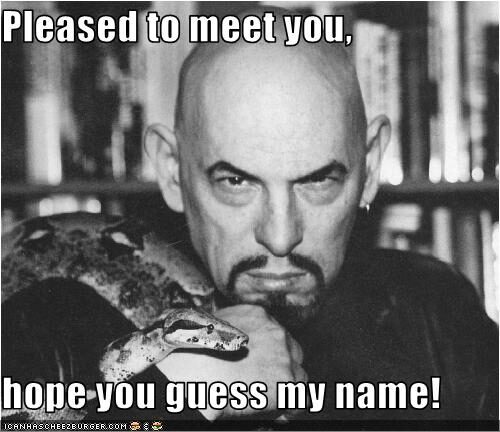We’re featuring “Slice of Life” conversations with Autistics of all ages — kids through adults — throughout April’s Autism Acceptance Month. Today we’re talking with Dusya Lyubovskaya, who co-hosts Autism Acceptance Awareness Day and Month 2012 with Paula C. Durbin-Westby. What is your name? My name is DUSYA LYUBOVSKAYA. I am 30. Do you have a website? I do not have a website, I do have indeed a blog and it is on Google: Dusyalyubovskaya.blogspot.com! What would you like a one-sentence description of yourself to say? I am an Autistic person who is interested in an Non Autistics (NT) perspective or point of view! Do you have any autistic superpowers? What are they? Well, I have a photographic memory and I have a feeling for my surroundings (Emotional Intelligence) (if you call that super power 😉 )! What are some situations that make you happy, or satisfied? Well, when I…
Tag: autistic
Here at TPGA, we’re featuring “Slice of Life” conversations with Autistics of all ages — kids through adults — throughout April’s Autism Acceptance Month. Today we’re talking with TPGA Contributor Michael Drejer. (Note slightly NSFW subject matter near the end.) What is Your Name and age? Michael Drejer. I’m 33. Do you have a website or are you on Twitter? Twitter: @maialideth What would a one-sentence description of yourself sound like? “Michael is an aspie living in Denmark.” Do you have any autistic superpowers? What are they? The ability to spot tiny differences that other people would not be able to see. Also handling the NT world is definitely a superpower. What are some situations that make you happy, or satisfied? When I have done a very challenging piece of work, like cleaning the room, doing laundry or completing a particularly difficult test at work successfully. Also when I find…
Here at TPGA, we’re featuring “Slice of Life” conversations with Autistics of all ages — kids through adults — throughout April’s Autism Acceptance Month. Today we’re talking with Monkey, who happens to be the son of TPGA Contributor Mir Kamin. What is your name and age? My mom calls me Monkey on her blog, and I’m 12 years old. Do you have a website? No. What would a one-sentence description of yourself sound like? This is a hard question. One sentence that describes me is that I am unable to answer this question because there are too many choices! Do you have any autistic superpowers? What are they? I am really good at math. I am also good with animals. Autism enhances my concentration and memory, I think, which helps with math. Animals don’t notice if I say the wrong thing or act funny, they can just tell I love…
Here at TPGA, we’re featuring “Slice of Life” conversations with Autistics of all ages — kids through adults — throughout April’s Autism Acceptance Month. We’re thrilled to launch the series by talking with Aisling! What is your name? Aisling Alley. Do you have a website? No, but my “MOM” does: http://community.advanceweb.com/blogs/ot_9/about.aspx What would a one-sentence description of yourself sound like? Aisling: A “not-so-average” kid who is a remixer (Not on songs, but plays), artist, and a HUGE great actor (I think I should be in drama). Do you have any autistic superpowers? What are they? Unlike some autistic kids, I’m one of the lucky ones who can speak. However, I tend to have a short fuse, but I don’t show the anger that often. Often my mind is creative. I also have a great memory, so I can remember my past. What are some situations that make you happy,…
Because we consider April Autism Acceptance Month, Thinking Person’s Guide to Autism will feature “Slice of Life” conversations with Autistics of all ages — kids through adults — for each of the month’s remaining 29 days. We will profile a different autistic person every day, answering the same set of questions — in a similar spirit to (although for copyright purposes otherwise unlike) the Proust questionnaire capping each issue of Vanity Fair magazine. Why? We’d like to help our non-autistic readers get to know autistics as people who have interesting, complicated lives, and who are as diverse and varied as any other random population united by a label. We are the people in each others’ neighborhoods, and the more we know about each other, the more visible we and our children are, the more common Autism Acceptance will be. That is our hope. We’d also like to encourage you to…
Update: TPGA reorganized in Spring 2014, transitioning from a mostly-publishing focus to a mostly social media and information sharing-focus — and parted ways with our affiliate editors at that time. We remain grateful for their positive contributions to our community. —- We have big, wonderful, very exciting news: Five new affiliate editors have joined Thinking Person’s Guide to Autism: Kerima Cevik Rachel Cohen-Rottenberg Rob Gross Kassiane Sibley Sandy Yim We believe our new editors will bring unique perspectives to TPGA, and make us a better, more inclusive autism resource. We chose them because we respect them, we think they’re smart, compassionate, and fair, and we think they’ve consistently shown us where the holes lie in our autism coverage. You’ll see them on our Twitter and Facebook streams, as well as commenting on this site for TPGA. Please join us in welcoming them, heartily: Kerima Çevik is the neurotypical, married mother…
Susan Senator www.susansenator.com In 1993 when Nat was first diagnosed with Pervasive Developmental Disorder, (PDD) under the “Autism Umbrella,” I asked the doctor what do you do about that, what is the treatment? “Education,” he replied. He went on to tell me that no one really knew which approach was best, and that there were many schools of thought. “It is up to you to observe and figure out what works for Nat. When something is right for him, you’ll know,” he continued enigmatically. But I envisioned Nat at school — though back then I could barely picture that, he seemed so little and vulnerable — and this advice seemed wrong. He needed me, not school, I remember feeling. He would be bewildered by school. Lost. But the doctor was saying that he should actually be in school for as many hours as possible. (No one said “at least 30-40…
Zoe Gross illusionofcompetence.blogspot.com Zoe and her father Rob light candles in honor of George Hodgins. Photo © 2012 Steve Silberman Zoe is an autistic self-advocate. She recently organized and led a vigil to remember and honor George Hodgins. She read the words below at the ceremony, which was attended by self-advocates and their supporters — many of whom had been part of George’s life. Many of whom spoke out themselves. —- Last Tuesday, George Hodgins was shot and killed by his mother, who then killed herself. George lived here in Sunnyvale and he was 22 years old. I didn’t know George, but I can’t stop thinking about him. Maybe it’s because we have a lot in common — we lived near each other, we were the same age, we’re both autistic, although we led very different lives. I would like to have met George, but I can only mourn him.…
My particular form of prosopagnosia (facial blindness) includes inability to recognize faces and names. For example, every year I dreaded our family reunion and the inevitable awkwardness of seeing cousins and aunts and uncles and having no idea what their names were.
Lydia Brown autistichoya.blogspot.com To the parents of Autistic children: We need you. Sometimes in public discourse, Autistic adults and non-Autistic parents disagree over very important issues that affect each of us personally. Sometimes this disagreement is spectacularly explosive. But there is no way for the autism and Autistic communities to move forward without creating some type of group cohesiveness. Yes, that means that we will have to enter into painful dialogue and discourse, and yes, that means we will have to accept the validity and legitimacy of the ideas and feelings of people with whom we may disagree. It does not mean that we have to set aside all of our differences, because that would make us self-deceivers. But it does mean that we have an obligation to each other and to ourselves to recognize what Dr. Martin Luther King Jr. called “inescapable mutuality.” Every Autistic child, youth, and adult…



